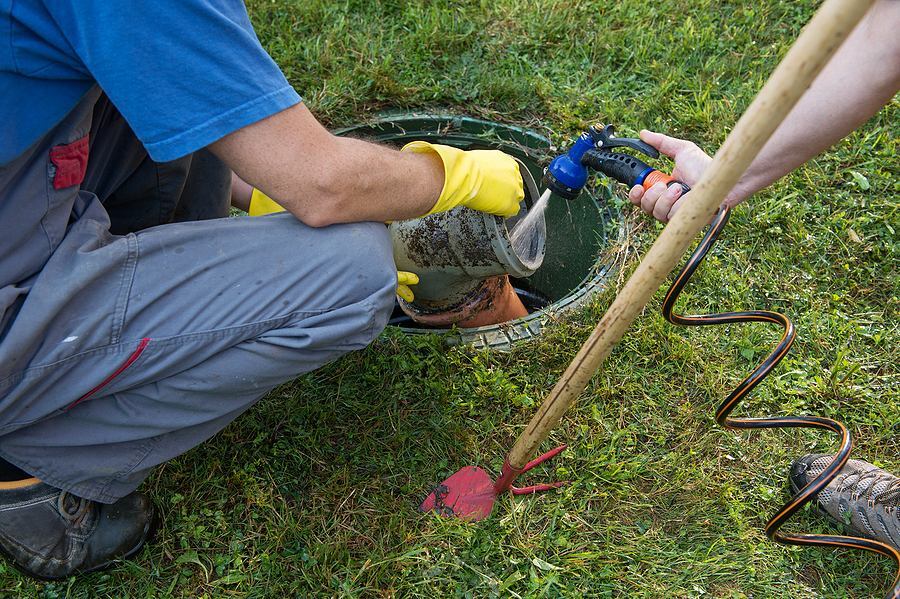Call This Wednesday to Get $25 OFF
Clean Solutions, Dirty Jobs – Done Right. Reliable. Responsive. Remarkable.
Call This Wednesday to Get $25 OFF
Clean Solutions, Dirty Jobs – Done Right. Reliable. Responsive. Remarkable.
A well-functioning septic system is essential for any home that isn’t connected to a municipal sewer line. When properly maintained, your septic system can last for decades, efficiently managing household waste and protecting the environment. However, neglecting routine care—especially septic tank pumping and cleaning—can lead to costly damage, backups, and even health hazards. Fortunately, a few smart maintenance habits and help from professionals at Septic Connection can keep your system running smoothly for years.

Your septic system works by separating solid waste from wastewater. Solids settle to the bottom of the tank (forming sludge), while fats and oils float to the top (forming scum). The liquid in between is filtered through your drain field. Over time, the buildup of sludge and scum can overwhelm the tank and clog the system if not properly removed.
This is why septic tank pumping and cleaning are essential. Pumping removes solids before they build up too much, while cleaning helps ensure your tank and lines are free of blockages. Regular maintenance not only protects your home but also saves money by avoiding expensive emergency repairs or total system replacement.
One of the most important tasks in septic system maintenance is routine septic tank pumping. Most homes need their tank pumped every 3 to 5 years, but the exact frequency depends on the size of your tank, the number of people in your household, and your overall water usage.
The septic system is an onsite waste treatment facility, and it is incredibly reliable. However, the system is only as effective…
Imagine flushing your toilet and then suddenly realizing that your backyard has turned into a swampy mess. This unpleasant experience is…
Soil testing is a critical step in various construction and environmental projects. It provides essential information about the ground conditions, which…
Grease traps are remarkable tools that help keep your establishment clean and free from bad odors. Septic Connection has a…
If you have just moved into a new home or property that relies on a septic system for waste and wastewater…
A reliable septic company can inspect your system and recommend the best pumping schedule based on your specific needs. Neglecting this step can lead to overflow, drain field damage, and even raw sewage backing up into your home.
When it’s time to have your tank pumped or cleaned, always hire a licensed septic company with experience and a good reputation. These professionals not only perform the work correctly but also inspect your system for cracks, leaks, and other signs of wear.
A professional inspection can catch small problems before they escalate into major issues. Look for a septic company that provides detailed service reports and explains any concerns they find so you can take action early.
Many septic system problems start with poor habits in the home. To protect your system between service visits, be mindful of what goes down your drains. Avoid flushing anything other than human waste and toilet paper. Items like baby wipes, paper towels, feminine hygiene products, and even "flushable" wipes do not break down properly and can quickly clog your tank or lines.
Also, avoid pouring grease, oil, harsh chemicals, or medications down the drain. These substances can disrupt the bacterial balance in your tank or damage pipes and drain fields.
Your septic system has a limited capacity. Using too much water at once can overload the tank and prevent proper separation of solids and liquids. This can cause solids to escape into the drain field, leading to clogs or failure.
Spread out your laundry loads, fix any leaking faucets or toilets, and consider installing low-flow fixtures to reduce water use. Simple conservation efforts can extend the life of your system and reduce the need for frequent septic tank pumping.
The drain field is a crucial part of your septic system. Keep heavy equipment and vehicles off the area to prevent compacting the soil or damaging pipes. Also, avoid planting trees or shrubs nearby, as roots can infiltrate the pipes and block the flow of wastewater.
Make sure water from gutters or sump pumps is directed away from the drain field. Excess moisture can flood the area and reduce the system’s ability to treat wastewater.
Caring for your septic system doesn’t have to be complicated. With regular septic tank pumping, professional inspections from Septic Connection, and smart usage habits, you can extend the life of your system and avoid unpleasant surprises. A little preventative maintenance goes a long way. Stay proactive, and your septic system will continue to protect your home, your yard, and your wallet for years to come.
It started like many household plumbing problems do: slow drains, gurgling sounds, and water backing up where it shouldn’t. The assumption was simple—a stubborn clog somewhere in the pipes. A…
Read moreWhen septic problems start, many homeowners look for quick and inexpensive solutions. Online videos, store-bought additives, and advice from well-meaning neighbors can make do-it-yourself septic fixes seem appealing. Unfortunately, septic…
Read more